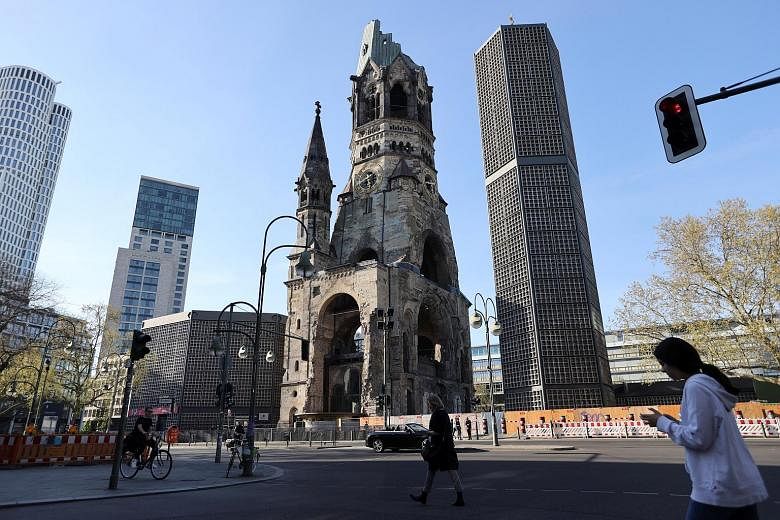European nations are commemorating today the 75th anniversary of the surrender of Germany, which brought about the end of World War II on their continent.
But although nations from Britain on Europe's western edge to Russia on the eastern approaches are marking the anniversary with a public holiday, there is as yet no continent-wide consensus on what Victory in Europe Day - or VE Day - means today, or should mean for future generations.
And the coronavirus pandemic has ensured all the elaborate military parades and other ceremonies planned by various governments for today have had to be cancelled.
The continent responsible for unleashing two global wars last century is now a model of peace and reconciliation.
There are plenty of national jealousies. And although very few people alive today can personally recall wartime experiences, old historic wounds sometimes still fester.
For instance, when Greece faced national bankruptcy a decade ago and was told by Germany that it must adopt harsh economic measures before it could be bailed out, quite a number of Greeks retorted that it was Germany which should pay reparations for the damage it inflicted on Greece during the war.
Similarly, politicians in Poland - whose territorial division between Germany and the Soviet Union sparked off World War II - sometimes still display resentment at what Germany did to their nation.
Nonetheless, European nations are now more interdependent than they have ever been. Until the coronavirus pandemic intruded, borders between many European countries were largely irrelevant. And Germany, which was so instrumental in starting World War II, is now Europe's most important - and most generous - pillar of stability.
Furthermore - and counter-intuitively - the longer the time passes since the Holocaust, the more that unique horror of the wholesale extermination of Europe's Jews is being recalled.
Many European countries have made Holocaust-denial a crime. And other nations apart from Germany are now examining their own historic responsibility in the mass extermination of Jews or the murder of other so-called "racially inferior" people. In short, Europe has learnt its lessons.
Still, VE Day means different things to different Europeans.
In Britain, it signifies absolute victory, pure and simple, the glorious moment when the British led the liberation of Europe and were unquestionably - at least in the western part of the continent - the supreme power.
Unsurprisingly, therefore, the British are engaging in yet another trip down memory lane. Recordings of Winston Churchill, Britain's wartime prime minister, will be played in the streets, and virtual exhibitions by the Imperial War Museum are being mounted. "This marks a historic moment for our great country to come together and reflect on the heroes of the Second World War," says Prime Minister Boris Johnson.
For the countries of central and eastern Europe, however, the anniversary is bittersweet, since their liberation from the Nazis was immediately followed by their occupation by Soviet troops and the imposition of communist regimes which lasted for almost half a century.
"The end of World War II does not mark freedom to the nations of Central and Eastern Europe. Instead, one totalitarian regime was replaced by another," reads a joint statement for VE Day by the presidents of Estonia, Latvia and Lithuania, three small but ancient Baltic nations on Europe's northern shores which simply ceased to exist at the end of the war and were incorporated into the Soviet Union.
The wounds of the Soviet occupation have still not healed properly; the former communist east of the continent is still far poorer than its western counterpart.
And then, there is the official narrative of Russia itself, which views VE Day as largely a Russian achievement, and deeply resents the fact that its sacrifice is often underplayed or marginalised.
Under President Vladimir Putin, the yearly May 8 Victory Parades in Moscow's Red Square have grown bigger, and the anti-Western rhetoric has turned more bitter.
The Russians conveniently gloss over the fact that, at the start of World War II, they were allies of Germany's Adolf Hitler, willing participants in Europe's carve-up.
Before the current health crisis seized Europe, one of the most sensitive diplomatic discussions between European capitals was over who among the continent's heads of states and governments was prepared to be seen next to President Putin in Red Square.
The coronavirus pandemic has now intervened to make that dilemma redundant.
So European leaders can now concentrate on marking the anniversary in their own countries, without worrying too much about creating a joint narrative.

